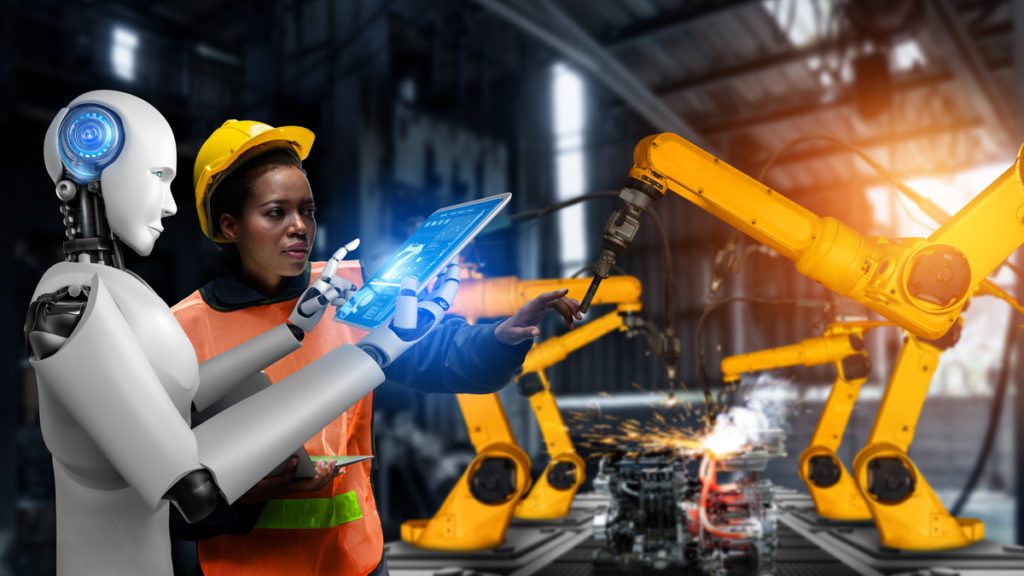The idea of virtual assistants has been around for some time. Although early attempts were not so successful, they did plant the idea, which has grown into a technology that is an integral part of many people’s everyday lives.
To this point, these virtual assistants appear primarily in the consumer space—on smartphones, home-control devices, tablets, and even TVs. Reporting the weather forecast, ordering products, playing music, and obtaining quick answers to questions of almost any nature is delivered through natural language conversational interactions with the AI-based systems.
One big advantage of this technology beginning its life in consumer products is the quantities of scale that were leveraged to bring the cost down to something affordable rather than being limited to very large corporations with multi-million-dollar budgets. It also resulted in enough usage to rapidly improve the quality of the interactions through countless cycles of machine learning.
Using Virtual Assistants in the Manufacturing Industry
It is exciting to watch what other applications these virtual assistants are now being delivered into. One such promising vertical, with many use cases, is manufacturing.
Information Retrieval
Just as with the virtual assistants for the home, a virtual assistant for manufacturing can provide quick answers to questions on the manufacturing floor. Rather than having to go to an office and ask a person or log into a terminal, a shop floor worker can simply ask the question wherever they are working.
Because cloud-based virtual assistants can be accessed from a wide variety of devices, including smartphones and tablets, they don’t require workers to take valuable time away from the manufacturing process; users can simply speak their questions or, if the area is too noisy, they can tap the question into their mobile device. The virtual assistant can then access a wide range of interconnected systems, including ERP, supply chain, inventory, and product specifications, to get information for making decisions quickly.
Efficiency
The virtual assistants can also provide natural language control of production systems. Again, instead of having to leave their place on a manufacturing line to get to a control panel, workers can simply speak or type the directive, and then make changes to a production order, adjust equipment parameters, or check on system status.
For manufacturing lines that run 24/7, 365 days per year, it is crucial to increase operational efficiencies wherever possible. Minutes saved scale up to huge differences across an organization. Training time is also reduced when natural language processing improves the human-machine interface.
Quality Control
Another area of the manufacturing process that can be enhanced using a virtual assistant is quality control. Often, quality control requires humans to carefully watch production, looking for things that are out of place.
Flaws in the product, the wrong product, and parameters that are out of range all require careful monitoring either directly or using video cameras. Even environmental conditions, such as temperature, can be monitored with infrared cameras.
By coupling an AI-equipped virtual assistant with image processing, an operator can focus more of their attention on other tasks. They can be alerted with natural language to a situation that requires their attention when it is detected by the virtual assistant.
What’s Available Today
These virtual assistants for manufacturing are not simply a futuristic vision. They are available right now from several companies that are finding creative ways to impact manufacturing with virtual assistants.
Check out Vision AI Assistant from AVEVA. “The Vision AI Assistant enables enhanced process optimization, thereby reducing time, wastage, and costs,” says AVEVA Global Head of AI and Advanced Analytics Jim Chappell. ” Cameras can also be used in areas that are not suitable for humans for security or safety concerns, freeing up workers to focus on high-value tasks instead of continuously monitoring live camera feeds.”
According to the SmartBots website, SmartBots AI Chatbots for Manufacturing “enable employees to carry out repetitive, tedious, and mundane tasks in an easy conversational manner, which increases the overall productivity and efficiency. SmartBots help you jump start your Conversational AI journey with intelligent and engaging Manufacturing Chatbots accessible across channels, including voice channels.”
BotCore by Acuvate, according to the company website, provides a “digital assistant to equip employees with required data on-the-go…Using BotCore’s Bot building platform, enterprises can now build an intuitive chatbot accessible across any mobile device keeping the employees in reach of information at all times.”
Looking for real-world insights into artificial intelligence and hyperautomation? Subscribe to the AI and Hyperautomation channel:











